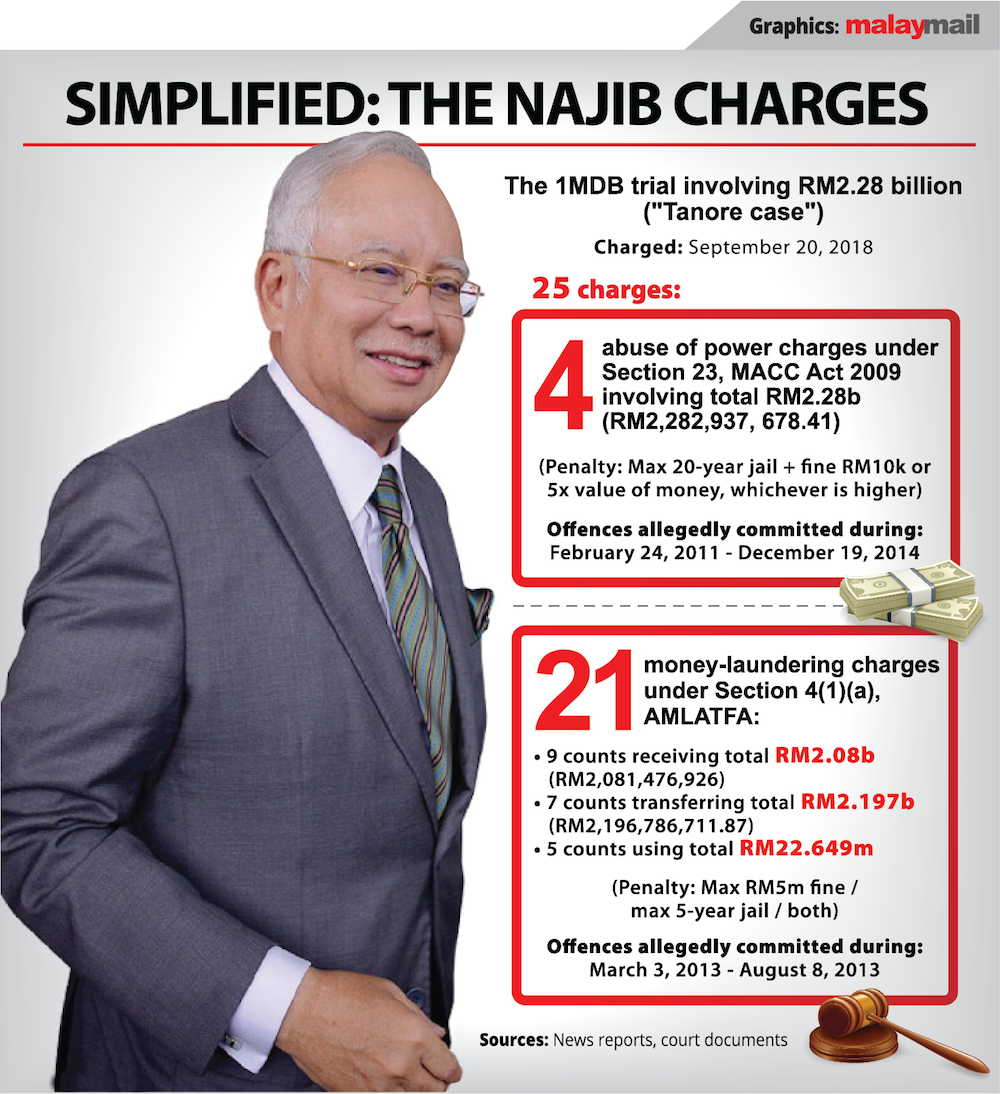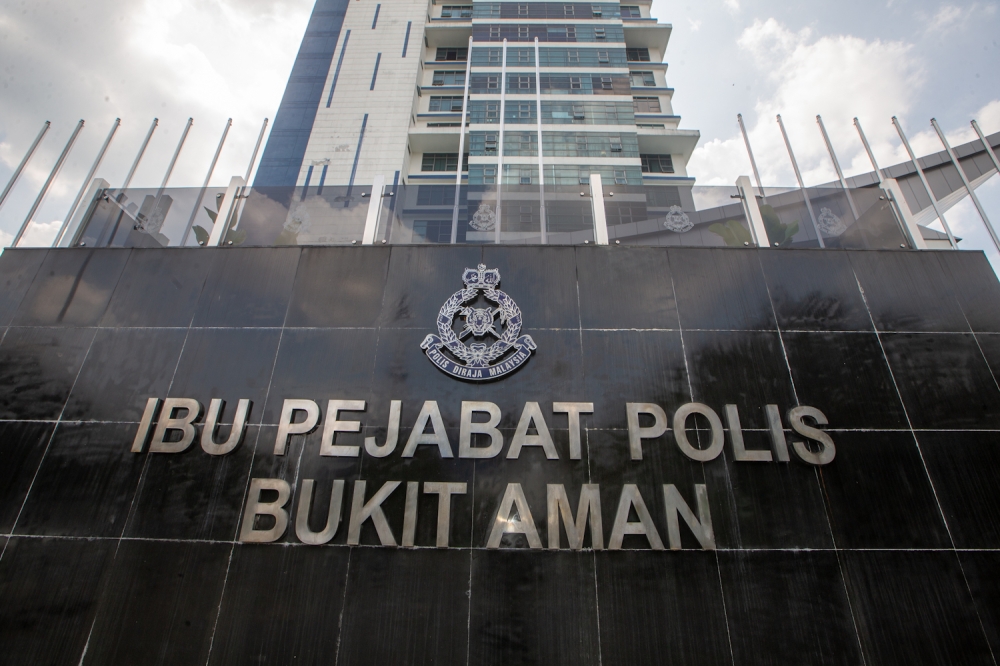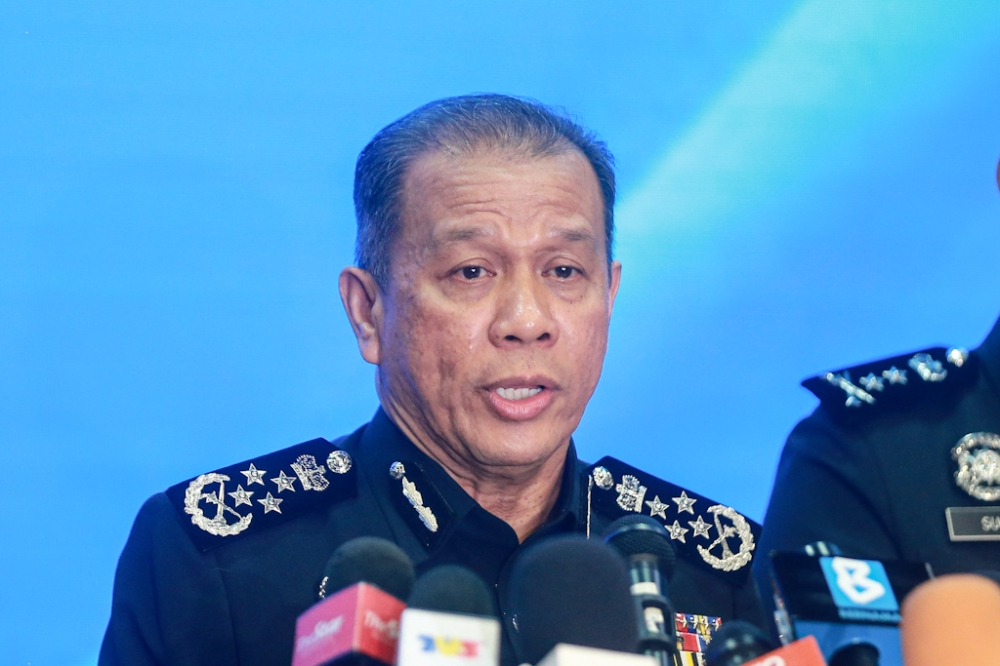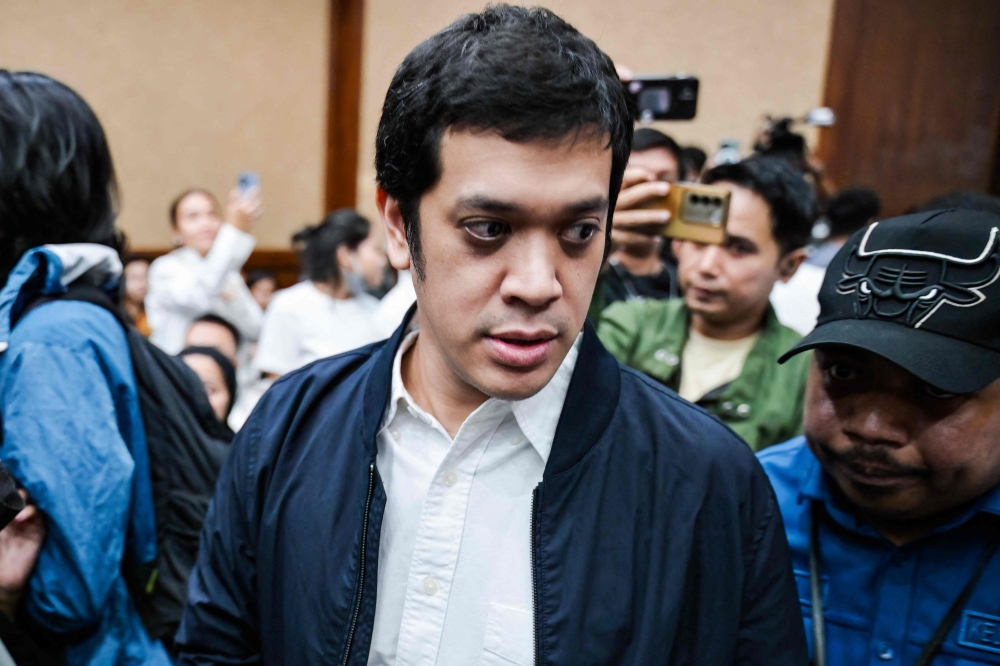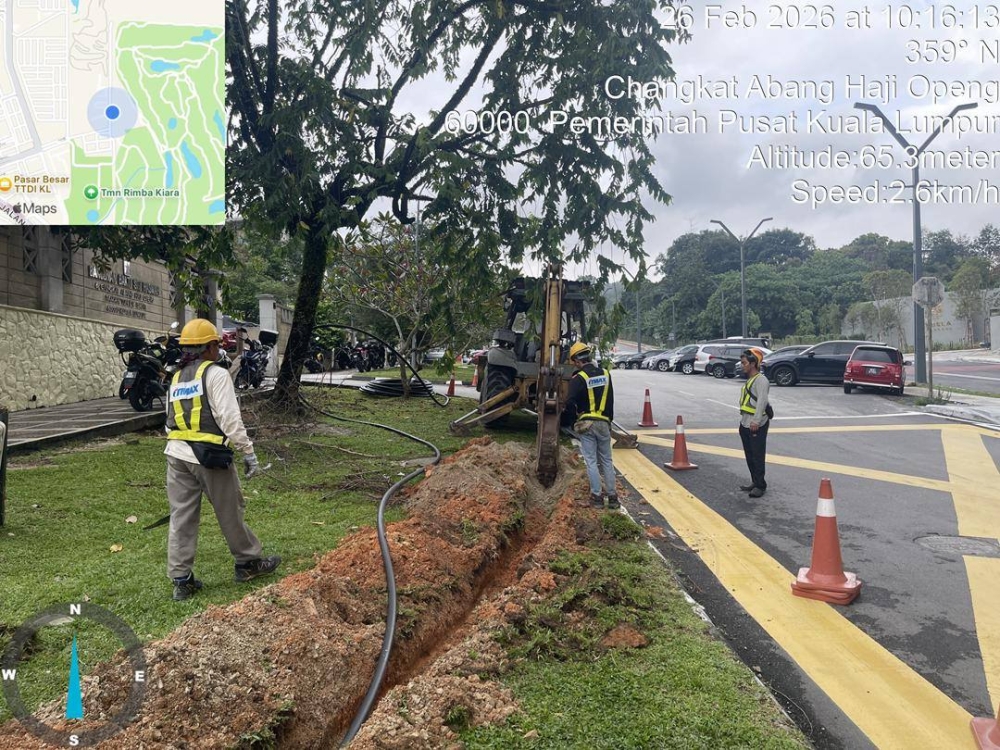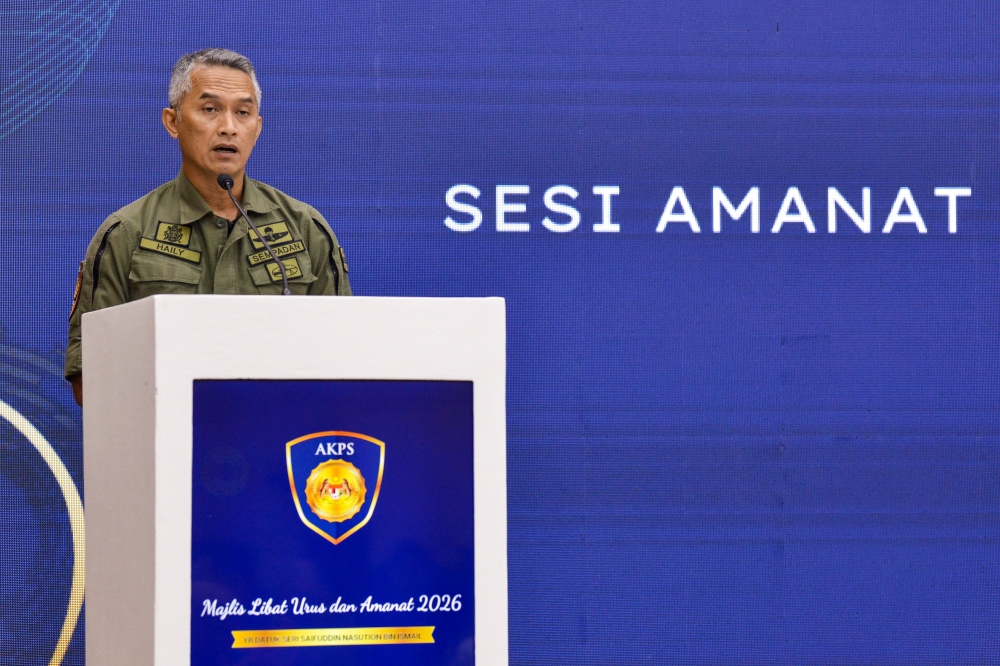KUALA LUMPUR, Jan 5 — Datuk Seri Najib Razak as the then prime minister was the one who ultimately ran the show for 1Malaysia Development Berhad (1MDB), which was owned by the government, the company’s former CEO told the court today.
Testifying as the 10th prosecution witness against Najib in a criminal trial, 1MDB’s ex-CEO Mohd Hazem Abd Rahman today dismissed the idea that he could have resisted any directives by Najib if they went against the company’s interests, suggesting that this would not be how the situation would be in reality.
During the 1MDB trial today, Najib’s lead defence lawyer Tan Sri Muhammad Shafee Abdullah sought to use the 1MDB Memorandum and Articles or Association (M&A), or the company’s constitution, to argue that it was the board of directors that ran the company instead of Najib in his various roles as then finance minister or on behalf of the company’s shareholder MOF Inc.
MOF Inc is owned by the Finance Ministry, and Najib had as then finance minister signed off on approvals for 1MDB affairs on behalf of the shareholder.
Shafee went on to say that Article 6(e) of the company constitution had stated MOF Inc is a separate legal entity from 1MDB, and that MOF Inc shall not be responsible for the obligations and liabilities of the company.
“If the company through the board of directors blunders, invests wrongly, pays to wrong people, siphon money out — you know whatever happened in 1MDB, here it says the MOF Inc shall not be responsible for the obligations and finances of the company.
“See, he doesn’t run the company, he is a mere shareholder. The point I’m trying to make is crystallised here. You are aware of these provisions I pointed out to you?” Shafee asked.
Hazem then agreed that he was aware of the provisions, based on his reading of the company’s constitution today, but said he did not know them in detail previously.
Shafee then continued to insist that Hazem would have known he could turn down Najib’s requests on 1MDB, but Hazem only accepted that this would be true only on paper based on the 1MDB company constitution and would not be feasible in reality.
Shafee asked: “You should know as CEO. Doesn’t this Article tell you, assuming the shareholder MOF Inc, which the PM being minister of finance would be the alter ego, if he tells you something wrong and you think ‘hey, this is not right with the company’, you are not supposed to obey his instructions, because that’s against the interest of the company?”
Hazem then cited the company constitution of 1MDB: “Based on this, yes.”
Shafee: You can only base on this M&A? It is your company’s constitution.
Hazem: Based on the M&A, yes. But based on real life, the shareholder is the government and the shareholder running the show is the PM, that’s a different story.
Earlier when challenging Hazem’s written witness statement in the 1MDB trial, Shafee asked him regarding Article 117 of the M&A, where it was stated that the prior written approval of the prime minister was required for any amendments to the M&A, for the appointment and removal of the company’s directors and senior management team,
According to Article 117 M&A, the prime minister’s prior written approval was also required for any financial commitments by 1MDB, including investments or other matters likely to affect government guarantees, national interests, national security or government policies, with the government to make the “final and conclusive” decision on what amounts to national interests, national security and national policies.
Under cross-examination by Shafee, Hazem agreed that there has not been a situation where he could look at a document that showed Najib as having used or invoked Article 117 as the prime minister, but said he understood that the shareholder of 1MDB has to give approval to critical matters involving 1MDB.
Shafee: So you can say for certain that Datuk Seri Najib as the prime minister has never invoked Article 117?
Hazem: Well if you say in that term, ‘invoke’, no. But as far as I understand, approval as far as critical matters is concerned, has to be approved by the shareholder, in this case, Datuk Seri Najib.
As Shafee again pressed on regarding Article 117 by saying it can only be invoked by a person in his capacity as prime minister and not as finance minister, Hazem said he thought it was the “same”.
Hazem later said that he considered Najib to be the same person despite the then prime minister’s multiple roles or wearing of multiple hats in 1MDB, noting: “As far as I’m concerned, it’s the same entity.”
Apart from being the prime minister and finance minister, Najib was also then the chairman of 1MDB’s board of advisers, and also representative of 1MDB’s sole shareholder MOF Inc via his position as finance minister.
Hazem agreed that the functions of the different positions held by Najib in relation to 1MDB were different, again confirming that Article 117 legally only dealt with the powers of the prime minister and that Najib had never legally invoked this clause in 1MDB documents that Hazem had scrutinised as 1MDB chief operating officer (COO).
Hazem however insisted that Najib had still given his approvals to 1MDB matters, stating: “But when I was there as COO (chief operating officer) going through all the papers, the approval we look at is Datuk Seri Najib — whether he wears any hats. As long as he has approved, by Datuk Seri Najib, he signed as representative of the shareholder.”
Hazem was 1MDB COO from August 2012, before becoming 1MDB CEO from March 2013 until early January 2015.
Hazem agreed that it did not matter to him whichever hat that Najib was wearing over 1MDB matters and that he had taken it as Najib having the powers to decide, but disagreed with Shafee’s suggestion that this interpretation of his was wrong.
Among other things, Hazem agreed that it was due to the M&A’s provisions that Najib as the prime minister automatically became chairman of the board of advisers for 1MDB, confirming that the board of advisers — which meets if the board of directors seeks its advice — had never met during Hazem’s time in 1MDB as COO and CEO.
Hazem did not find it surprising that the board of directors did not see the need to consult the board of advisers over any 1MDB affairs and said the board of directors would have consulted the advisory board if they felt the need to seek advice.
Hazem agreed that the board of advisers has no executive role in 1MDB and cannot give directions on what to do, agreeing that the board of advisers’ chairman, who is also the prime minister could not “directly” instruct him to carry out investments for 1MDB, but again appeared to hint that reality could play out differently.
Shafee: If he tells you that, you can say, I cannot take orders from you. I have to take orders from the board of directors. So you agree with me, you can actually disagree, ‘I can only take orders from the board of directors?
Hazem: Theoretically, yes.
Throughout the cross-examination today, Shafee also sought to argue that it is the board of directors of 1MDB that makes decisions first, before the shareholder gives its approval.
Before the start of the trial today, High Court judge Collin Lawrence Sequerah noted that the current standard operating procedures (SOP) require court proceedings here to stop earlier at 3.30pm for sanitisation work, noting that the trial will have to start earlier at 9.15am and with lunch breaks to be shortened.
The trial resumes tomorrow, with Shafee to continue cross-examining Hazem.
